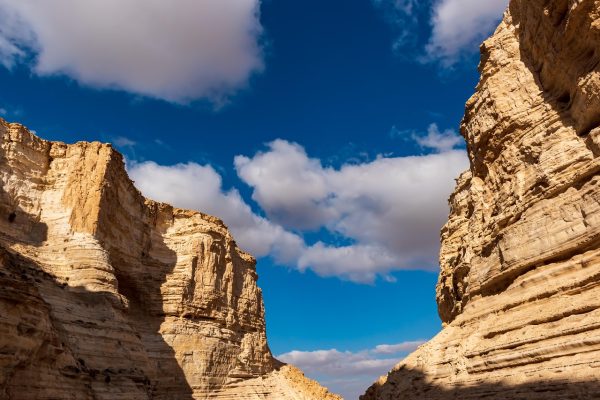This ceremony can be done at any time, though it is well suited for those times when the Torah is read, particularly on Shabbat mornings.
This ritual can be woven into an aliyah, another part of a Torah service or can stand alone.
Parent(s) are called up to Torah for an aliyah. After the aliyah is completed, Brit Torah begins.
Opening song
Family or officiant selects one of the following psalms or another meaningful song
Psalm 100
|
עבדו את ה’ בשמחה באו לפניו ברננה |
Ivdu et Hashem b’simha bo-u l’fanav birnana |
Serve the Holy One through happiness
Enter God’s presence through joy
Psalm 150
|
כל הנשמה תהלל יה הללויה |
Kol haNeshama Te’hallel Yah Halleluyah |
With every breath we praise the Source of Life
Psalm 92
|
מזמור שיר ליום השבת טוב להודות יי ולזמר לשמך עליון |
Mizmor Shir l’Yom haShabbat Tov L’hodot l’Adonai u-l’zamer l’shimkha elyon |
A song for Shabbat
It is good to be grateful to God
and to uplift the spirit through song
Leader:
Welcome!
There is a blessing for just this moment — when something so wonderful happens that it benefits the whole of community. ___________ will recite this blessing and as a collective affirmation of such goodness, we will all respond with “Amen.”
Parent(s) Recite:
ברוך אתה יי אלהינו מלך העולם הטוב והמיטיב
Barukh Atah Adonai Eloheinu Melekh Ha-olam, Ha-tov V’hameitiv.
Blessed are You, Source of all Life, who is good and bestows goodness.
All:
Amen
Leader:
A Midrash teaches that when Israel stood to receive the Torah, the Holy One said to them:
“I am prepared to give you My Torah. Show me that you are trustworthy and that you will observe and study the Torah and I will give it to you.”
They said: “Our ancestors will speak for us.”
The Holy One said: “Your ancestors are not sufficient. Show me that you are trustworthy, and I will give you the Torah.”
They said: “Our prophets will speak for us.”
The Holy One said: “The prophets are not sufficient. Show me that you are trustworthy and I will give you the Torah.”
They said: “Indeed, our children will speak for us.”
The Holy One said: “Your children are trustworthy. For their sake I give the Torah to you.”
—Shir HaShirim Rabbah 1:24
Atem nitzavim hayom, We are all gathered here today, to witness this new life as s/he enters the covenant of Adonai, our God and the Jewish People. In this way we are all standing again at Sinai, grateful for the blessing of this new life and the gift of Torah that she brings into our lives. As we welcome this little one, we invoke the presence of our ancestors and those cannot be here with us today, [list names] – whose spirits are present in this moment and whose lives etched in this little one’s story.
In just a moment [insert parents names] will swaddle this new life and recite the blessing enacting the brit, the sacred covenant. It is our collective hope that this swaddle embodies the best of Jewish tradition, comforting, supportive, nourishing, ever aware that as we grow, tradition can feel a bit confining at times.
In the future this swaddling cloth, known in German Jewish communities as a wimpel, can be used to wrap the Torah.
Baby is swaddled and placed on the open Torah scroll.
Leader:
It is said that while a baby is in utero, she knows the whole of Torah. And just as she sees the light of this world, an angel touches her on her lips and she forgets the whole of Torah. It is our prayer that this child will learn much Torah from books and people of all stripes, and perhaps most importantly, that this little one will discover, rediscover and reveal the Torah that is uniquely hers and already within her.
Parent(s) say:
ברוך אתה ה’ אלהינו מלך העולם להכניסה/ו בברית
Barukh Atah Adonai, Eloheinu Melekh Haolam, l’hakhnisah/o bivrit.
Blessed are You, Source of All Life, who welcomes this little one into the covenant.
Everyone responds:
אמן. כשם שנכנס/ה לברית כן ת/יכנס לתורה ולאהבה ולמעשים טובים.
K’shem shenikhnas la-brit, kein yikanes l’torah, u-li’ahavah u-l’ma’asim tovim.
K’shem shenikhnesah la-brit, kein tikanes l’torah, u-li’ahavah u-l’ma’asim tovim.
Just as s/he has entered the covenant, so may s/he enter to the study of Torah, love, and acts of loving-kindness.
Parents lift and hold child.
Naming
Leader:
Our tradition teaches that each of us has three names. The name our parents call us. The name we are called by God. And the names we call ourselves. Today we will hear the first of many names and nicknames this little one will be known by.
Eloheinu velohei avoteinu v’imoteinu, God of all of our ancestors, kayem et hayeled/hayeldah hazeh l’horim, sustain this child. Let her/him be known among the people Israel, Vayikare shemo/shema b’yisrael _________________l’veit/ben/bat _____________________ v’ _____________________ and let his/her name be called around these parts __________ child of ________ and ________. May the new parents rejoice in the growth of their seedling. Ki imkha m’kor hayyim b’orkha nireh or. For with you, Holy One, is the Source of Life and by your light we shall see light.
(Repeat after me)
Hodu ladonai ki tov, ki l’olam hasda.
Parent(s) explain name and bless their child. Parents can choose to use the language of blessing below.
“We wish for you, ______, what we wish for all children. We wish for you to be a person of character, strong but not tough, gentle but not weak. We wish for you to be righteous, but not self-righteous, honest but not unforgiving. Whenever you journey, may your steps be firm, and may you walk in just paths and not be afraid. Whenever you speak, may your words be words of wisdom. May your hands build and your heart preserve what is good and beautiful in our world. May the voices of generations of our people move through you, and may the God of our ancestors be your God as well. May you know that there is a people, a rich heritage to which you belong, and from that sacred place you are connected to all who dwell on earth. May the stories of our people be upon your heart and the grace of the Torah rhythm dance in your soul.”
—Rabbi Sandy Eisenberg Sasso
Everyone:
(repeat after me)
זה הקטן גדול יהיה or זאת הקטנה גדולה תהיה
Ze hakatan, gadol yehiye or Zot haketanah, gedolah tehiye
May this little one grow to be great!
Leader:
It is traditional for a birth parent to recite Birkat HaGomel following the birth of a child. This is a blessing of gratitude, specifically following a life-threatening situation. For some, childbirth is just that. But for others of us, the gratitude stems from a place of overwhelming joy and connection. Rebbe Nahman teaches that the whole entire world is a very narrow bridge, and the important thing is not to make ourselves afraid. With this blessing, the birth parent expresses gratitude both for having survived childbirth and even more so, for the ongoing journey of freeing ourselves from the fear and shame of our own bodies.
The birth parent recites:
ברוך אתה ה’ אלהינו מלך העולם
הגומל לחיבים טובות שגמלני כל טוב
Barukh atah adonai, eloheinu melekh ha’olam, hagomel l’hayyavim tovot sh’gemalani kol tuv
Blessed are you, Source of Life, who bestows kindness in spite of our failings,
for bestowing every kindness upon me.
All respond:
מי שגמלך כל טוב הוא יגמלך כל טוב סלה
Mi sheh’gmalekh kol tov, hu yig’malekh kol tov selah.
May the one who has bestowed upon you every kindness bestow upon you every kindness forever.
Leader blesses parents:
May God who blessed all of our ancestors, bless you [insert names] as you accept the sacred responsibility of parenthood.
May you give your child the love and support to be who s/he will be.
May your love be strengthened as you help each other to grow into this role of parent to this child.
May you allow yourselves to be surprised to who this child will be.
May you remain open to who each of you will become as you grow and change knowing that this new life has much to teach you.
May you feel seen and supported by your families and communities.
May you be blessed with creativity, flexibility, and patience.
May the Source of Blessing bless you in this awesome journey.
—English adapted from Rabbi Alissa Wise
יברכך ה’ וישמרך
יאר ה’ פניו אליך ויחנך
ישה ה’ פניו אליך וישם לך שלום
May the Holy One bless you and keep you.
May the Holy One shine light upon you and be gracious to you.
May the Holy One turn towards you and give you peace.
All sing:
Siman Tov u’Mazal Tov!












